Fatum of General Joubert
In the previous article, we talked about the French general Barthélemy Joubert. It was told about his youth and rapid career in the French Republican army. Our hero became a general at the age of 26, and at the age of 29 he already led three armies in turn, the last of which was the Italian.
We parted with him in Paris, where, removed from the command of troops in Italy because of his adherence to principles and offended by the Directory, Joubert entered into an agreement with one of the “directors” of the republic - Emmanuel Joseph Sieyes, which was also described in the previous article.
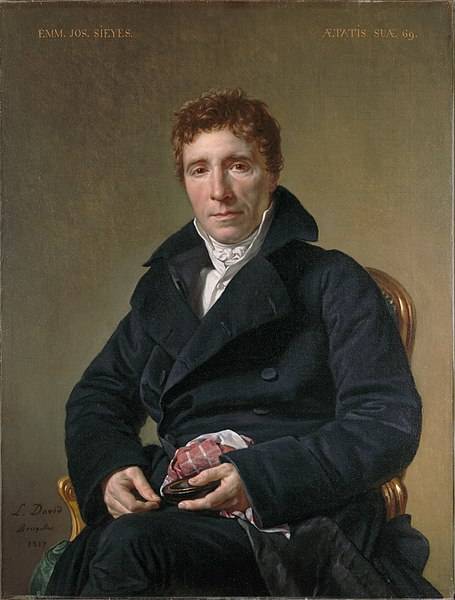
Emmanuel Joseph Sieyes by Jacques Louis David
Sensing the fall of the unpopular government, Sieyes then looked for someone with whom he could organize a coup d'état himself. He hoped to outplay his partners and allies by appointing them secondary positions of consuls of "war" and "peace". For himself, in the future triumvirate, he reserved the post of "great electorate", endowed with power close to the royal.
General Joubert was at that time the commander of the 17th division, which consisted of the Paris garrison. It is not surprising that Sieyes chose him as his "sword".
General Joubert's unexpected "business trip"
But why did Joubert suddenly leave Paris and find himself in Italy at the decisive moment?
Some believe that the conspirators decided that another glorious victory was needed for the perfect implementation of the coup d'état. After her, he would have to return to Paris in triumph - like the Roman emperor.
However, in fact, the situation in the republic then seriously deteriorated.
After the British destroyed French fleet at Aboukir Napoleon's Egyptian army found itself in a large African cage, from which she had no way to get out. Bonaparte himself needed all of his still-unused luck to slip into France.
But on the ships "Muiron" and "Carrera" then there were and could be killed or captured by such iconic figures as Berthier, Eugene Beauharnais, Murat, Junot, Lannes, Duroc, Bessières, Marmont, as well as Antoine Marie Lavalette (in the future - the head of the French postal department), mathematician Gaspard Monge (future minister of the sea) and chemist Claude Louis Berthollet.
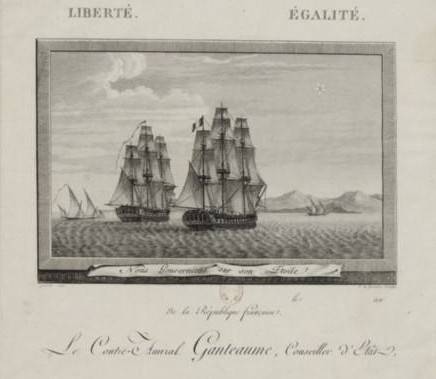
Yves Marie Le Gouaz. Navires Le Carere and Le Muiron
In Italy at that time Suvorov was smashing the French armies.
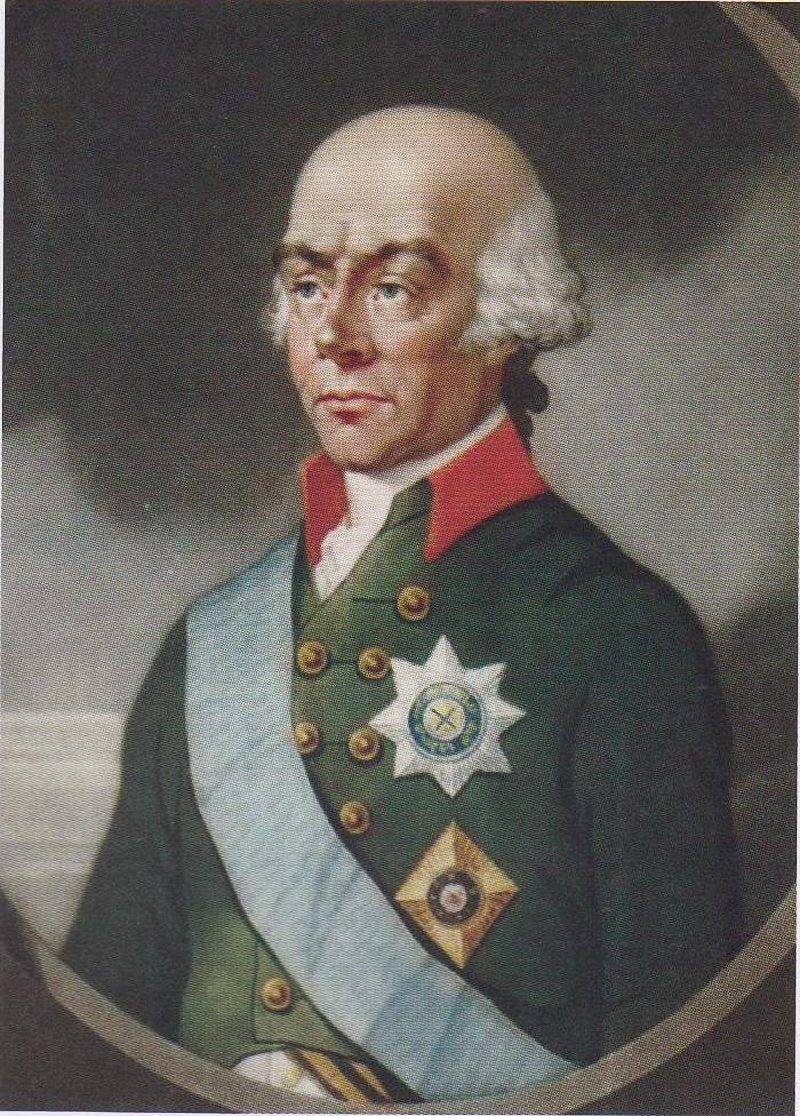
Valentine Green. Field Marshal Count Suvorov-Rymniksky ("from an original drawing made in Milan in May 1799 by Lieutenant Fris, dragoon of the Karachaevsky regiment"). This elderly, but courageous and self-confident man does not look too much like a caricatured old man of Russian paintings.
The situation in Holland and on the Rhine was alarming.
And the Directory sent the disgraced Joubert to command the troops in Italy.
A very interesting question: would Bonaparte have left Paris without completing such an important matter as the planned and already planned coup d'état?
Hardly.
Unlike many of his other "colleagues" in the military craft, Napoleon was not only a general, but also a politician to the bone. It seems that he would have accelerated the preparation for the conspiracy and would have resolved the issue with the "directors" even before leaving for Italy.
But the young General Joubert, who was bored in the capital, was eager to fight. And so he postponed the implementation of the planned overthrow of the "directors". Probably, unlike Bonaparte, Joubert would later, as Sieyes had suggested, agree to be content with the role of military consul.
But, to the great regret of this intriguer, his protégé was not destined to return to France.
General Joubert's plans
I must say that Joubert had an extremely low opinion of the "Russian barbarians" and believed that only the mediocrity of the generals who headed the valiant Italian army of the French Republic allowed some old Suvorov (who, as Joubert believed, only with the Turks and the Poles " by rank "to fight successfully).
In general, “one foot here, the other there”: to quickly conquer Italy and return to disperse the “directors” and become the ruler of Paris and France.
Joubert was not even embarrassed by the fact that Suvorov's opponents in Italy were two outstanding French commanders. The first was Jacques MacDonald, the future marshal. He was recalled from Italy after the defeat at Trebia. And then Jean Victor Moreau fought with the Russian commander. A year later, this general, at the head of the Rhine army, will win a number of victories over the Austrians, decisively defeat them at the Battle of Hohenlinden, and occupy Regensburg and Munich.
But who are they to Joubert?
He certainly put himself on a higher level of the military hierarchy.
The result of such arrogance was the return of Joubert's corpse to Paris.
And it happened just three weeks after his farewell to his young wife.
General Joubert's last battle
Joubert arrived in Italy on August 4, 1799. He brought 5 thousand soldiers with him.
The young general was in a hurry and already on the 9th of the same month moved the army to Novi through the Ligurian mountains.
Here, on August 15, 1799, a fierce battle between the French and the Russian-Austrian troops of Alexander Suvorov took place.
Joubert planned to defeat the enemy in parts, believing that Suvorov would have to leave some of his divisions for the siege of Mantua, Tortona and Alessandria. As a result, he himself divided his army in two, which was a fatal mistake.
Mantua and Alessandria had already fallen, and Novi had more Russians and Austrians than Joubert expected to see. When the decisive battle began, some French units did not have time to approach, and the Pears division entered the battle on the move.
Nevertheless, the position of his army was very strong. In the center, it rested on the Novi fortress, and the rugged terrain in front of it made it extremely difficult for the attacking units to move. Attempts to lure the French into an open space were unsuccessful.
In the end, Suvorov decided to give battle in this position imposed on him.
The order he gave to General Paul von Krah, who was in command of the Austrians (he was supposed to start the battle), is laconic and simple:
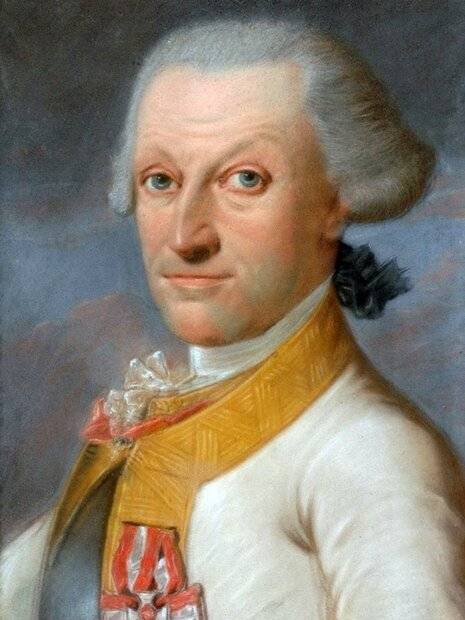
General Paul von Krai. The chief of his staff was then Franz Wereuter, who would then draw up an extremely unsuccessful plan for the Swiss campaign of Suvorov.
Initially, the blow was struck on the left flank of Joubert's army, on which, as it became known from the testimony of the prisoners, not all French units still managed to take their assigned positions.
So far, only Lemoine's division was stationed here, to whose aid Emmanuel Gruchy was in a hurry. Assessing the situation, Joubert went to the left flank. Acting as at the Battle of Rivoli, he set out to cheer up the five French infantrymen who had fled. But then a horse was already killed under him, and Joubert joined the ranks of his grenadiers.
Now he rode into their ranks on horseback, which was another mistake.
Here General Joubert “found” his “bullet”. At the time of his death, he was only 30 years old.
The officers who were next to him claimed that, dying, the commander said:
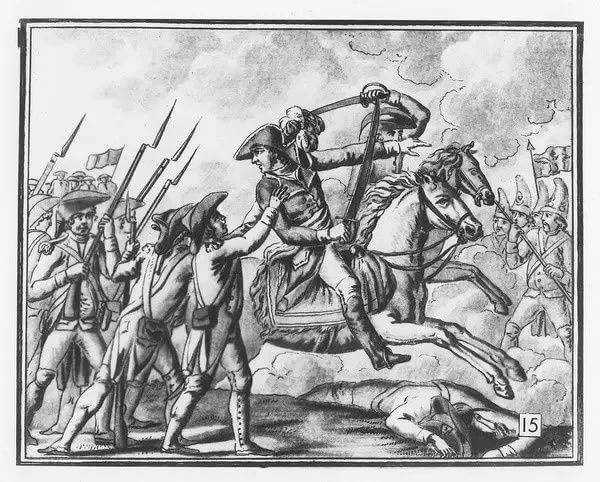
Death of General Joubert at the Battle of Novi, 1799 (litho), Musee Carnavalet, Paris
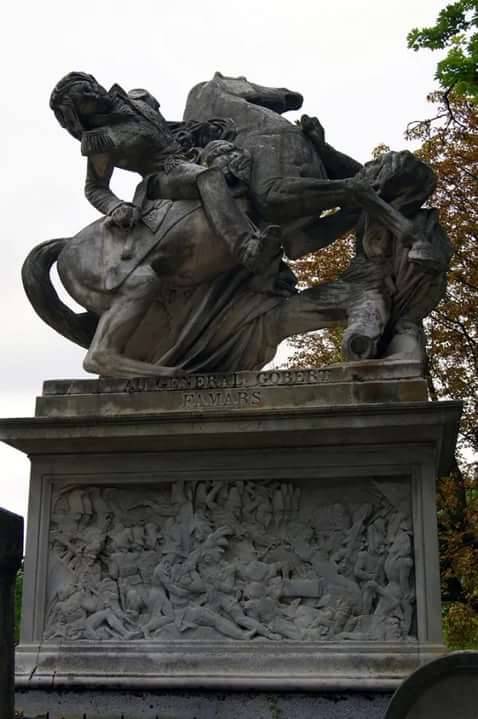
Joubert's grave at the Père Lachaise cemetery
Battle of Novi
And the battle was just beginning, and the command of the French troops again passed to Moreau. This general did everything he could, but again suffered a crushing defeat.
Moreau managed to stop von Kray's advance by transferring General Saint-Cyr's brigade to the left flank. He categorically forbade persecuting the Austrians, and Suvorov said about this:
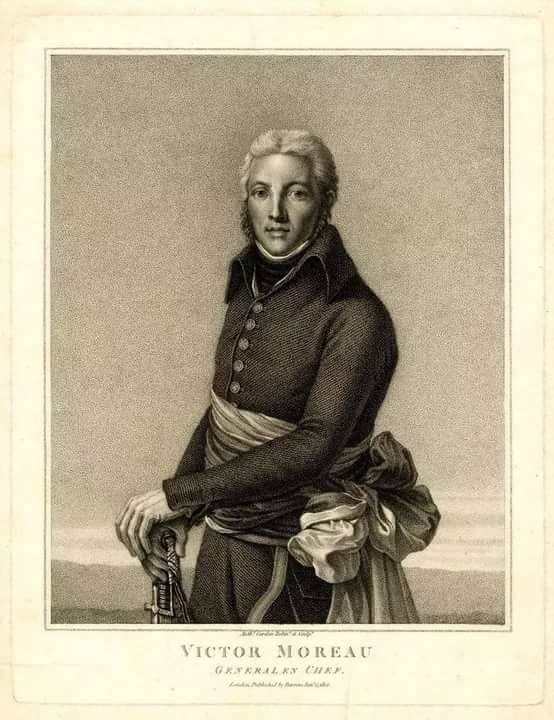
Charles Francois Gabrielle Levashe. Portrait of General Moreau
After that, Suvorov ordered to strike at the center of the French, weakened by the departure of Saint-Cyr. The advancing Russian units ran into the walls of the Novi fortress.
Three assaults were unsuccessful, and by one o'clock the literally bleeding armies of both sides were still in their positions.
The battle resumed after a three-hour hiatus. This time, the strike on the right flank of the French was successful. Then, after the fourth assault of that day, the Novi fortress fell in the center. Under the threat of complete encirclement on the left flank of the French, the divisions of Lemoine and Grusha began to retreat. Very soon this retreat turned into a flight.
The French lost more than half of their personnel and it was only thanks to Moreau's commanding skills that the remnants of their army were able to retreat to Genoa.
Three generals were captured by Suvorov - Pears, Perignon and Collie-Ricci.
Dominique Perignon, who was previously famous for his victories over the troops of the Austro-Prussian coalition in 1794-1795, will later become Vice President of the Senate and Honorary Marshal of France.
Four times wounded at Novi, Emmanuel Hrushi will fight in Austria, Prussia, Spain and Russia. He will win many victories, on April 15, 1815 he will receive the title of Marshal of France. But most people will remember only his unsuccessful pursuit of Blucher's Prussians during the Battle of Waterloo.
Louis Leonard Antoine de Colli-Ricci, an Italian in the French service, will not show himself in anything special and will die at home in 1806.
The future Marshal and Minister of War Laurent Saint-Cyr then escaped capture. But he will become the only French marshal to surrender to the enemy. It will happen on November 11, 1813, the little-known Russian general Mikhail Bulatov will take his sword.
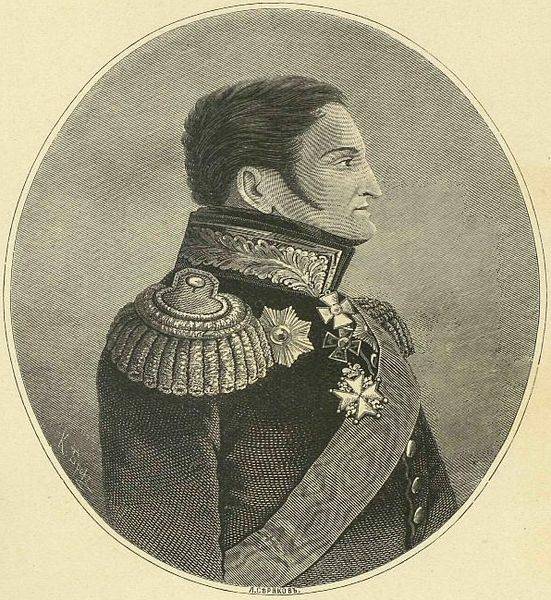
M.L.Bulatov. Portrait from the "Military Encyclopedia" by Sytin.
After the battle of Novi
The news of the next failure of the French army in Italy and the death of Joubert, on whom so many hopes were pinned, threw Paris into confusion. A 5-day mourning was declared in the capital. France could be defeated without waiting for the return of another savior from overseas - Napoleon Bonaparte.
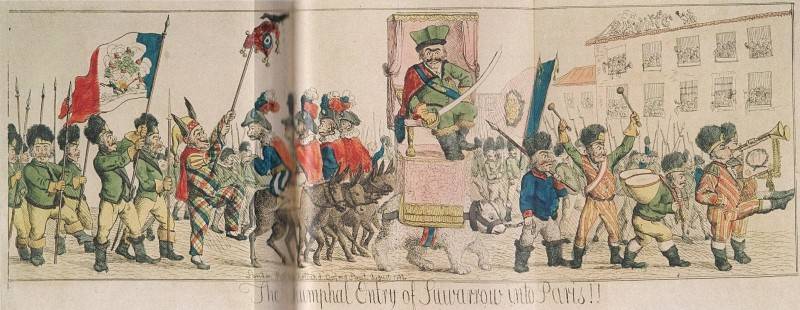
William Holland. "The triumphal entry of Suvorov into Paris." Caricature, August 1799
But instead of going to Paris, Suvorov was sent by the Austrians to Switzerland. The plan for the new campaign was drawn up by Franz Wereuter, who would later become "famous" for his disposition of the battle at Austerlitz. According to Verreuter's plan, three relatively small Russian-Austrian armies were to unite literally in front of André Massena.
Contrary to Werheuter's expectations, this general, who in France at that time was called Enfant chéri de la Victoire (“beloved child of victory”), immediately took action, defeating Rimsky-Korsakov's Russian corps and forcing the Austrians of Friedrich von Gotz to withdraw.
Suvorov learned about his tragic loneliness after the Saint Gotthard Pass and Devil's Bridge were taken. He decided not to return to Italy, but to lead his troops forward - advancing to retreat. Suvorov got out of the alpine trap with great difficulty, great losses and great glory, having managed to bring with him about one and a half thousand French prisoners.
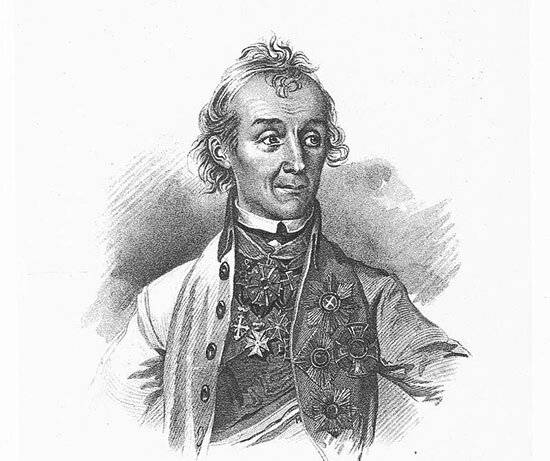
T. Shevchenko. Portrait of A. V. Suvorov
This difficult transition ended on September 30, 1799. And on October 9, the frigate Muiron entered the port of Fréjus, and General Bonaparte set foot on French soil.
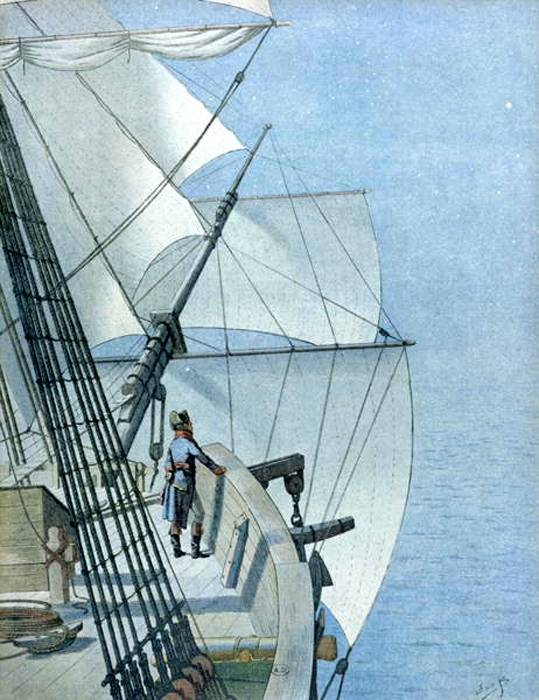
Onfre de Breville. Return of Napoleon from the Egyptian campaign
On October 16, he arrived in Paris. And on November 9, 1799 (less than three months after the death of Joubert) Sieyès nevertheless set in motion the plan of a coup d'état he had prepared. Sieyes' new chosen one, Bonaparte, publicly declared to the Barras envoy:
With the "sword" the great intriguer Sieyes did not guess: Napoleon quickly pushed him into the background, then bought off the estate of Crosne, a seat in the Senate and the title of count of the empire. Even the post of third consul soon had to be surrendered to Charles François Lebrun.
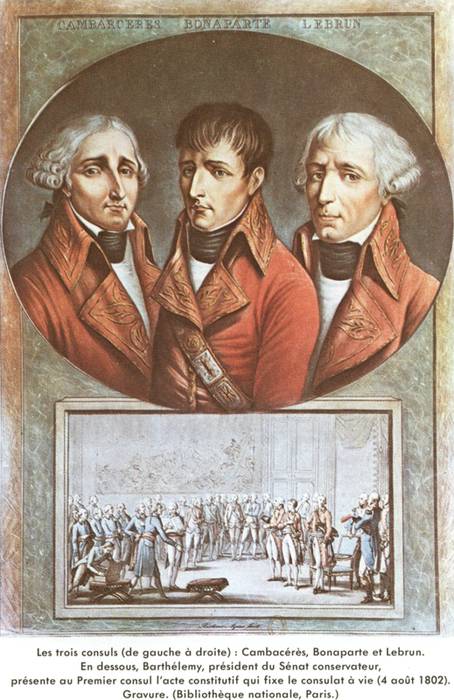
Jean Duplessis-Bertaud. Portrait of three consuls (Cambaceres, Bonaparte, Lebrun)
The great Alexander Suvorov died on May 8, 1800 in St. Petersburg, never having met on the battlefield with the French commander, whom he put on a par with Hannibal and Julius Caesar. Ahead was the whole era of the Napoleonic Wars. But this is already different story.
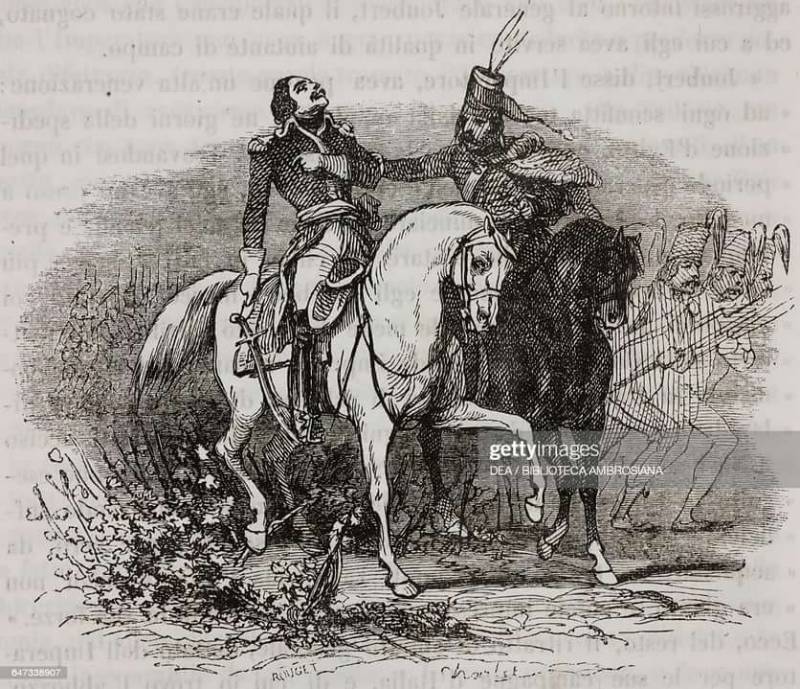
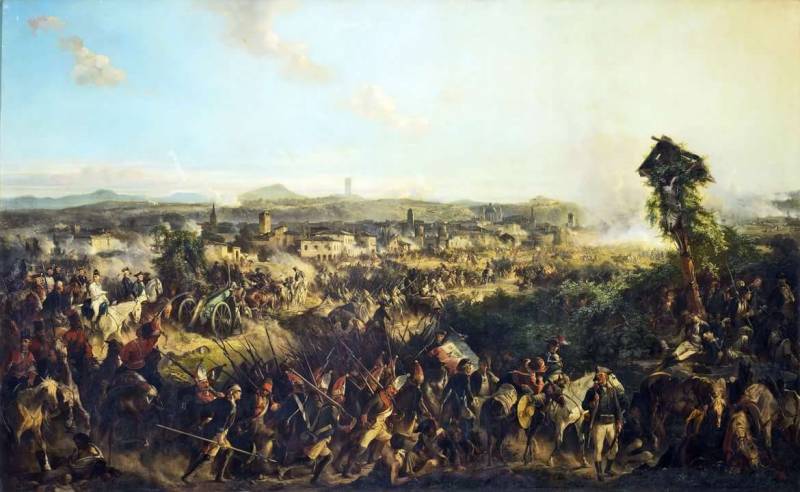
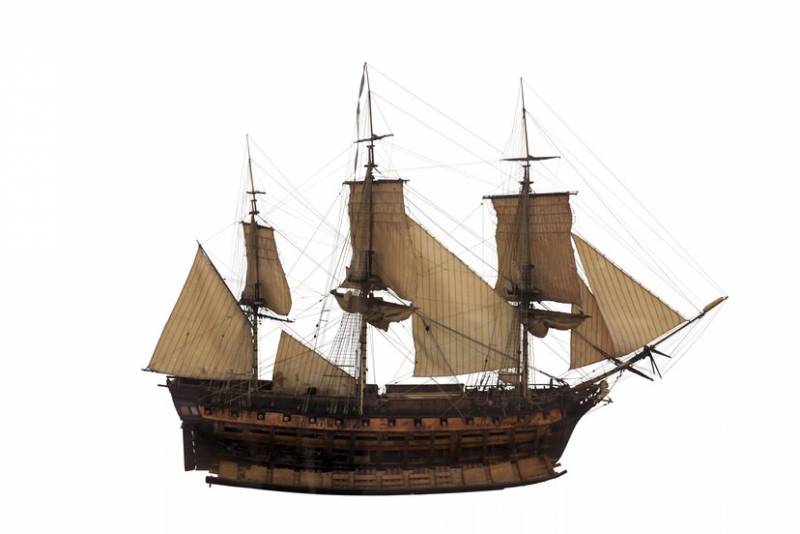
Information